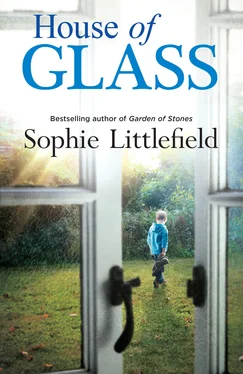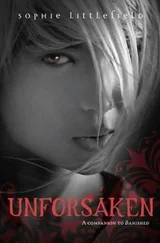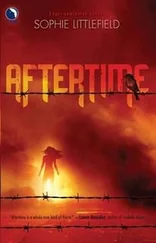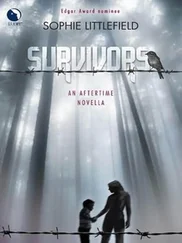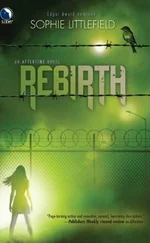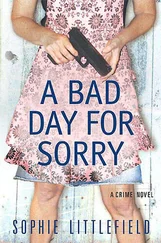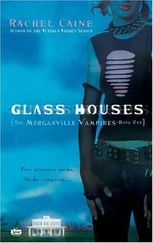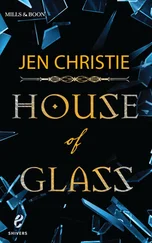A narrow staircase at the back of the hall led to the basement. It smelled of both mold and bleach. There was a washer and dryer up on blocks, splintery plywood cupboards with padlocks. The light from a naked bulb overhead and a few narrow windows near the ceiling wasn’t enough to cut the gloom. At the far end of the basement was a door set in unpainted Sheetrock that blocked off the rest of the basement.
“No way this is a legal apartment,” Tanya said. She tried the key, and the door opened.
Inside, the odor of bleach was stronger, but there was another faint smell underneath, ripe and awful and somehow sweet. So that’s the smell of death, Jen thought.
The apartment was a single room. A bank of cabinets and a sink anchored one wall; a tiny bathroom and closet were built into the other. A high, cobwebbed window looked out on a dead shrub. There was a bookcase, a table under the window covered with a patterned cloth, a soiled couch facing a television set on a pressboard console. A bed stripped down to the mattress, which looked none too clean.
“I bet he died in the bed,” Tanya said. “Otherwise the sheets and stuff would still be on there.”
“Um.” Jen felt faintly nauseous. “They didn’t say when they called?”
“They hardly said anything when they called. I think it was just some secretary or something. She was, like, when was the last time you saw your father? I wanted to tell her to shove the death certificate up her ass.”
“Tanya,” Jen said reprovingly. “She didn’t mean anything.”
“How do you know? You weren’t there.”
Jen let it go. They were both on edge today. Tanya just said whatever she was thinking, a trait that had always gotten her into trouble. Jen had learned a long time ago to think before speaking, to filter out the emotions first.
Tanya picked up a glass that had been sitting on top of the television and inspected the contents. “There’s nothing in here that’s worth anything. Look at this. The Salvation Army probably wouldn’t even take it.”
“Well, then I guess it’s good that we don’t have to deal with it.”
“I asked the management company if there was a security deposit,” Tanya said, putting her hand on the metal headboard and giving it an experimental shove. “They gave me the runaround.”
Why are we even here? Jen was thinking, but she knew the answer. For her, anyway. She had to see the room, the place where Sid had lived, to believe he was truly gone. She had to feel his absence, the emptiness that he left behind.
And there was the curiosity, too. That faint uneasiness—was it hope? Dread?—that there would be some clue to who he’d been, or more specifically, who they’d been to him. Some evidence that their lives had once been tangled together.
Tanya moved briskly through the room, opening cabinets, picking up papers and CDs from the shelves and examining the covers, flicking through the half dozen shirts hanging in the closet. Jen stood near the window, watching. A yellowing newspaper was stacked on one end of the couch. A chipped bowl holding loose change sat next to the TV.
“Found his cash,” Tanya said, holding up a plastic baking soda container. She shook out the bills and counted. “One-eighty.”
“There’s nothing else here you want to take back with us,” Jen said. “Is there?”
“I guess not.” Tanya looked around, frowning. “I guess I just wanted to know if he had pictures of us. Of Mom. Anything, from then.”
“Are you disappointed?”
Tanya shook her head. “Not really. I guess I’m almost relieved. But I just had to see it for myself. Like, if he’d secretly saved things from then, it would be like part of him was still alive. And not in a good way.”
“Yeah, I know what you mean.”
“Oh, wait.” Tanya reached up on the closet shelf and took down a faded cardboard shoe box. She brought it over to the table and dumped out the contents. Papers, mostly. She flipped through them. “Central Valley Tool and Die...it’s just HR stuff. Benefits, employee handbook. These look really old. Wonder how long he even worked there?”
An envelope fell out, two words written in black ink on the outside. “The Girls.” Jen didn’t know until that second that she knew her father’s handwriting, that the memory of it had lodged fast and hidden all these years.
Tanya shook out three pictures. Two were their school pictures from the year before Sid moved away: shy grins, their hair curving out in Farrah Fawcett waves, sleeveless cotton shirts revealing thin suntanned arms. The third picture was of the whole family, much earlier: their mother in the middle, Jen no more than six or seven and wearing a sundress printed with anchors. Sid with a mustache, looking out of the frame, scowling with impatience, as though there was somewhere else he needed to be.
* * *
The afternoon held no more surprises. Forms to sign at the morgue, where it turned out that they were not required to view the body. A brief tug-of-war at the mortuary until Jen gave in to the pitch and bought their cheapest urn for the ashes she had no intention of ever claiming.
It was dark by the time they checked into the Double Tree. Their room had a view of the parking lot. The heater cycled on with a vengeance, something rattling deep within.
“Is it okay with you if we do room service?” Jen asked. “I really don’t want to go back outside in the cold.”
“I’ve got something better,” Tanya said, setting her overnight bag down on the nearest bed. She unzipped the bag and pulled out a bottle of wine, and then another. “I even remembered the corkscrew. And check it out. Snacks.”
Jen feigned enthusiasm. She knew Tanya was just trying to contribute, and she didn’t really need anything more than the canned nuts and snack mix. While Tanya was setting it all up on the nightstand between the two beds, laying out a hand towel for a tablecloth and pouring wine into the plastic cups, Jen called Ted, but there was no answer. She took off her makeup and changed into her pajamas.
“Wow, look at you,” Tanya said, when Jen came out of the bathroom. She was lounging against the pillows in her bed, watching television. She picked up the remote and shut it off. “Got big plans later?”
Jen looked down at her pajamas, a silky navy blue set that Ted had given her for Christmas. “These aren’t anything special,” she said, blushing.
“Seriously? I don’t dress like that unless I’m getting some action.” She grinned, her teeth pink from the wine. She was wearing a faded T-shirt over sweats. Her cup was almost empty.
Jen got into her bed, pulling the covers up over her legs and taking a sip of her wine. She was always embarrassed when Tanya talked about the men she was seeing. They never lasted long, and they were never anywhere near as good as Tanya made them sound when she first met them.
“I feel like we ought to drink a toast to the old bastard,” Tanya said, and it took a minute for Jen to realize that she was talking about their father. “Only, I can’t think of a single thing to toast him for.”
Jen raised her cup, reaching across the space between the two beds. She was going to say May he rest in peace, but something stopped her; she had never seen Sid at rest during her entire childhood. He was always on the move, fidgeting, pacing, coming and going.
Until Tanya called, Jen had barely thought about her father in years. Sid Bennett was often away from home when his daughters were young, disappearing for days at a time. Later he took pipeline work in Alaska and his absences stretched to months. When he was around, he wanted little to do with two solemn, skittish little girls, and spent his time antagonizing their mother instead until she finally told him not to bother to come back.
Читать дальше
